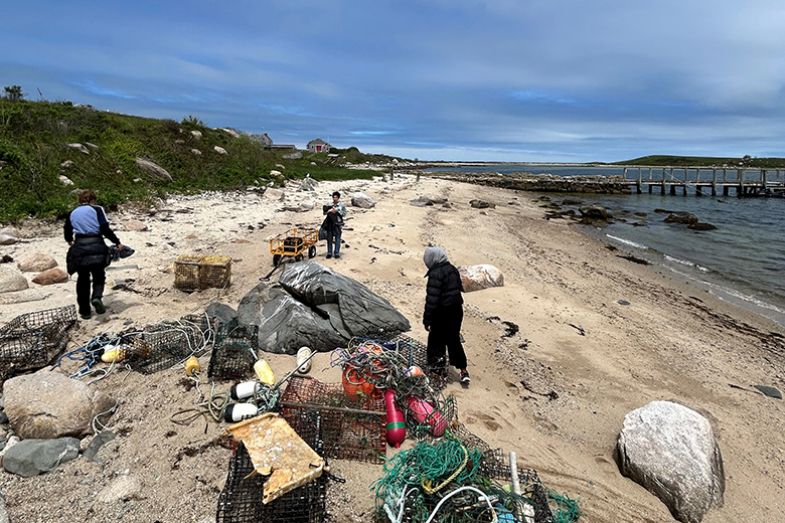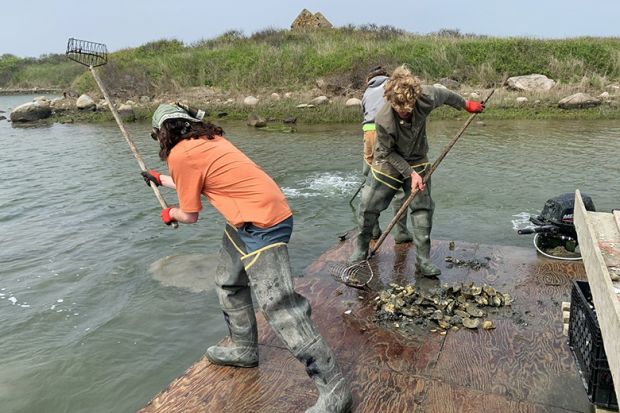The eruption of rancorous campus protests in recent months and the sometimes heavy-handed responses of high-level administrators have revealed that students and administrators are often at odds about each’s roles in, and visions of, the university. This requires us to interrogate the social contract that binds and creates roles for students, administrators, faculty and staff.
Current responses to “crisis” in the liberal arts suggest that universities must simply return to their roots, emphasising contemplation of texts in classrooms. In May, for instance, University of Pennsylvania academics Ezekiel Emanuel and Harun Küçük called in The New York Times for a revival of Great Books curricula because they allow “students to gain distance from the daily noise and [for] their reason to roam free…rather than becoming absorbed in contemporary events”.
They added that “freedom of thought, critical reasoning, empathy for others and respectful disagreement are paramount for a flourishing democratic society”.
Campus resource collection: Teach your students to be engaged citizens
We do not disagree with the importance of these virtues. But instead of siloing students, we – two US college students who were recently part of a new programme called the Gull Island Institute – propose that these civic virtues can be more effectively taught when students are citizens of their universities and have practical responsibilities within them.
After a hectic spring semester, we were part of a group of nine students who headed off for a month-long stay on the island, 13 miles off the Massachusetts coast. Seeking to reimagine higher education, the institute’s students are its citizens and its legislative body. Would we make decisions by majority vote? By consensus? We deliberated on the pros and cons of each governance model. A motion to vote was introduced. Nine hands rose in favour of consensus.
Over the ensuing weeks, we decided how classes would be structured, what labour would be done, and what food would be imported. At the end of the programme, we took over the admissions process and chose the next cohort.
Education on Gull Island felt empowering. After reading Marx, we asked ourselves: What could we do about the exploitation of earth’s resources spurred by production and accumulation? Changing a global economic system seemed beyond our reach, but changing our relationship to the environment on the island was more possible. We started cleaning up the island’s beaches, and, at a student body meeting, added beach clean-ups to our weekly labour rotations.

It is ironic that we needed to remove ourselves from society to feel our agency within it, but only here could students’ contemplations of theory inspire enforceable changes to the community.
Typically, university students are given only autonomy. They choose which classes to take, how much junk food to eat, and what time to go to bed. But the personal responsibility that eventually emerges from an education focused on personal and professional pursuits is but one part of civic virtue. Citizenship also entails duty and collective responsibility. Yet students have no communal responsibilities in the university, whether they pertain to material upkeep (cooking, cleaning, landscaping) or management (budgeting, hiring, planning). No wonder students do not feel willing or even able to act beyond their own interests.
Of course, it is possible that students at Gull Island self-select for communal responsibility. We do not expect every student or institution to be interested in washing thousands of oysters as part of higher education. Nevertheless, we believe that most college students are interested in the workings of their education, and we believe that if the future of the institution depended on students, they would act with conviction – and the present fractures between them and university administrators and faculty would become less severe.
The recent campus encampments and protests about the Gaza war have shown that students perceive administrators to be unresponsive and uninterested. But if students were invited to understand and contribute to decision-making, they would be less likely to dismiss the important roles that administrators and faculty/staff play. Without necessarily diminishing their vigorous disagreement, students and administrators alike would feel empowered to seek dialogic resolutions.
More broadly, by creating communal responsibilities, for everything from the daily upkeep to the endowment, the “university” would no longer be a villainous black box but, rather, a shared project. True, students are already present in various budgeting and curriculum planning meetings, yet they are few: often, one student stands for thousands of unheard voices. Such largely symbolic roles only move universities further away from teaching students about democracy in practice.
Instead, various elements of the university, starting with the dormitory, must be recognised as self-governing entities, with distinct budgets and responsibilities. While seemingly insignificant, giving roles to students in governing these entities would provide them with a stake in the institution and leverage in administrative conversations. From this initial conditioning in the democratic process, they might go on to participate in campus-wide voting, labour committees and curriculum-planning summits.
Universities have created task forces and committees to address the lack of trust and civic discourse on campus. However, our island experience suggests that the answer is simple: to be good, trusting citizens, students must recognise that they are not an island. Universities should stop treating students as consumers and, instead, treat them as responsible governance partners.
In other words, by practising democracy, rather than just theorising about it, students will better serve their university – and the institution will better serve its students and society.
Nathan Badger is a student at the College of Idaho, studying history. Maya Rosen is a student at Harvard University studying social studies and history of science.
POSTSCRIPT:
Print headline: A democratic campus is a civil campus
Register to continue
Why register?
- Registration is free and only takes a moment
- Once registered, you can read 3 articles a month
- Sign up for our newsletter
Subscribe
Or subscribe for unlimited access to:
- Unlimited access to news, views, insights & reviews
- Digital editions
- Digital access to THE’s university and college rankings analysis
Already registered or a current subscriber? Login







